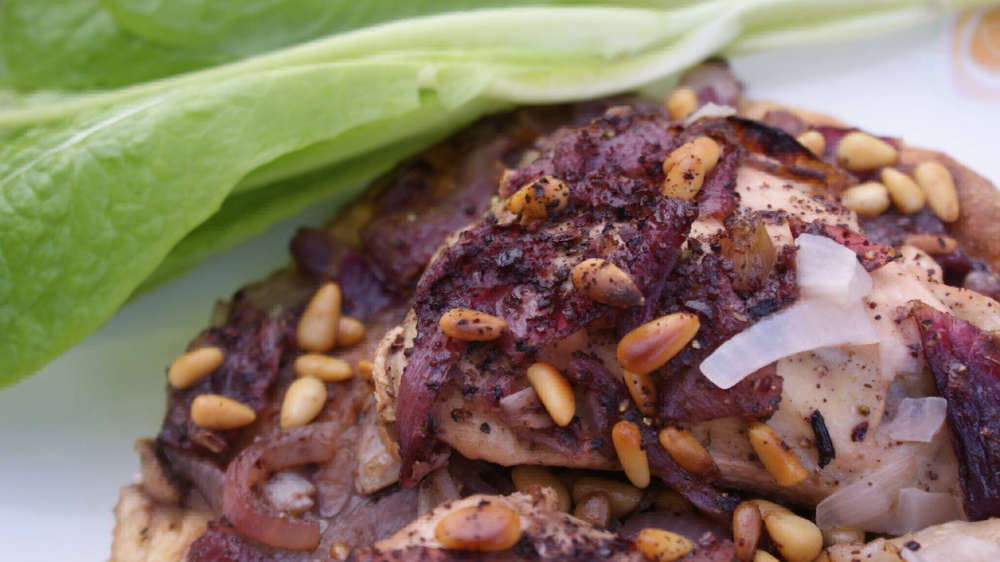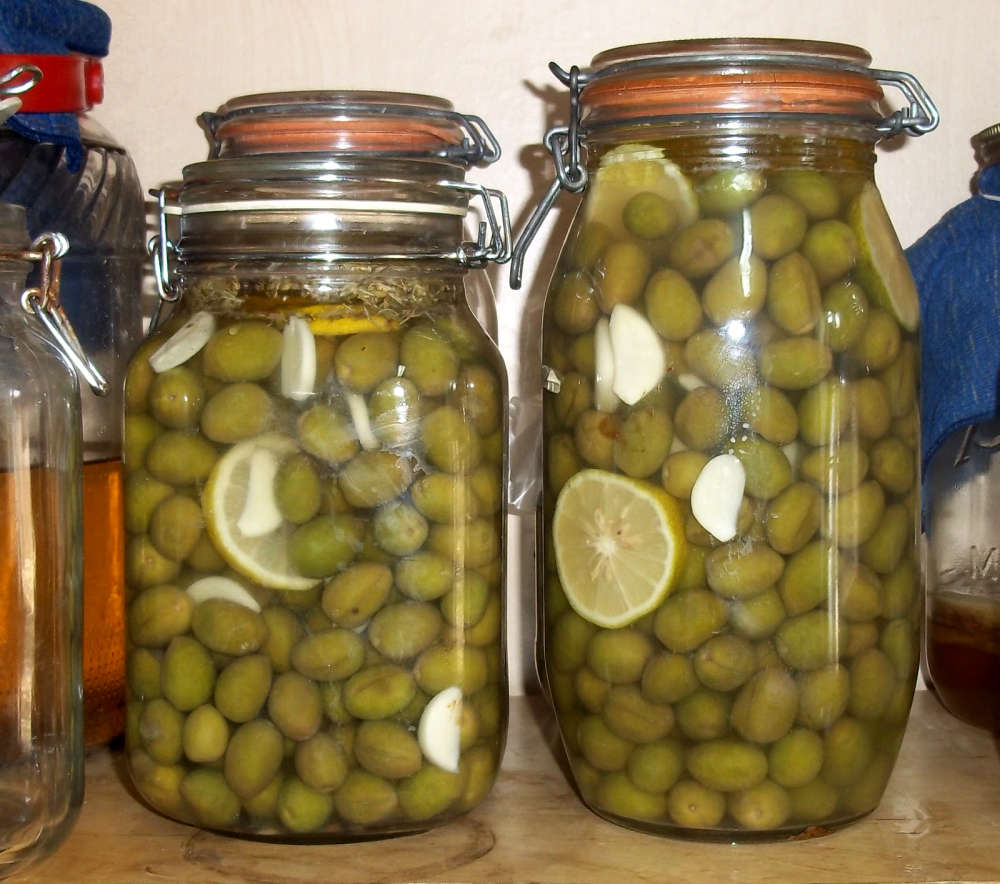Olive oil is one of the fundamental ingredients of Palestinian cuisine. It is added to most main dishes and to pastries, salads, hummus, and other dips. Freshly pressed olive oil is especially valuable for its spicy and grassy taste that makes one’s throat tingle. It is eaten in small quantities with a bit of salt and fresh taboun bread (baked on hot stones in a special oven called taboun) or with za’atar (thyme mixed with sesame seeds). After some time, when the bitterness has disappeared, the oil is used for frying and cooking.
But besides being the staple ingredient of daily food, olive oil has traditionally been used for the treatment of wounds, coughs, and muscle aches; as a cosmetic; and as an ointment for newborn babies. Elderly people advise drinking it for strength and say “kol ilzeit wa intah ilheit” “Eat olive oil and [be strong enough to] tear down a wall” (كُل زيت وانطح الحيط). It has also been widely used for the production of olive oil soap, both at home and in factories (such as in Nablus).
Green olives
Select big green olives, wash them, and crush them with a stone or mallet (one strong hit should be enough). Soak the olives in water for a week, changing the water every day. In this way, the olives will lose much of the characteristic bitterness and will be ready to be eaten sooner. Next, wash the olives, place them in jars (some people like to mix in lemon pieces, garlic cloves, and chili to taste), and prepare the brine. Mix salt and water in the ratio of one to eight cups. Cover the olives with brine and pour some olive oil on top of the mixture. Seal the jars well. Wait three weeks, then taste to see whether the olives are ready. Sahha!
Black olives
Green olives that are left on the trees turn black when they are more mature. The black olives can be preserved in salt.
Choose the undamaged black fruits and cover them heavily with salt. Store the mixture in a cloth bag placed in a container, allowing for juices to drain. Remove the juices daily. After two or three weeks, soak the olives in boiling water to remove the bitterness and the excessive saltiness. Store your olives in jars filled with olive oil. Possibly add lemon slices and chili to taste. Sahha!

Musakhan
Musakhan is one of the most popular traditional Palestinian dishes, one of the main dishes enjoyed during the olive-oil harvest season: A piece of chicken is served over a piece of whole-wheat taboun bread, and all is covered with a large quantity of cooked onions, saturated with olive oil, and seasoned with sour sumac.
Ingredients needed for four servings
4 small taboun breads
4–5 medium onions
olive oil
3–5 tablespoons baladi sumac
¼ teaspoon black pepper
Salt to taste
1 chicken cut into 4 pieces
1 teaspoon cumin
Bay leaf
Pine nuts and/or almonds
In a stockpot briefly fry the chicken in some olive oil. Cover the chicken with water; add salt, pepper, cumin, and bay leaf. Make a chicken soup.
Chop the onions (the pieces shouldn’t be too small) and fry them in olive oil on medium to low heat until golden brown and caramelized, stirring occasionally and adjusting the heat to avoid burning, then add 2 tablespoons of sumac.
Place the individual taboun breads on a baking tray. Add a generous amount of olive oil to the chicken broth and soak breads with the mixture. Cover the breads with onions; place a piece of chicken on top; cover with more onions, and sprinkle with the remaining sumac to taste – and with more olive oil, if desired. Bake for a few minutes until the bread and chicken turn a golden brown. Decorate with previously fried almonds and pine nuts. Serve with salad and yoghurt.
Sahha wa Afiya! (صحة وعافية)
Beata Andonia


